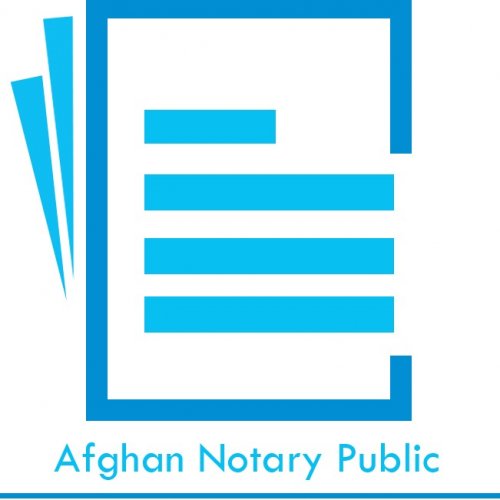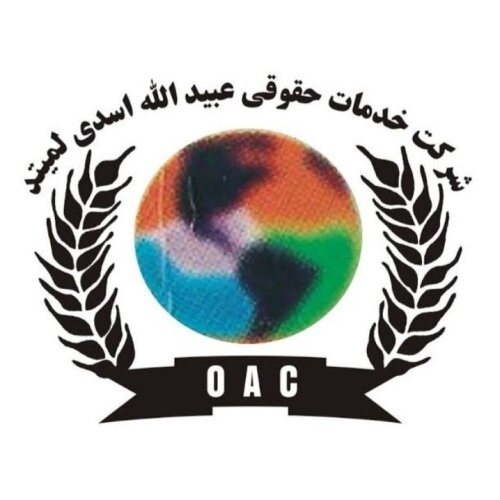Best Financial Services Regulation Lawyers in Afghanistan
Share your needs with us, get contacted by law firms.
Free. Takes 2 min.
Or refine your search by selecting a city:
List of the best lawyers in Afghanistan
About Financial Services Regulation Law in Afghanistan
The Financial Services Regulation Law in Afghanistan encompasses the legal frameworks governing the banking sector, insurance, securities, and other financial entities. The primary regulatory body responsible for oversight is Da Afghanistan Bank (DAB), which is tasked with ensuring financial stability and protecting consumers’ interests. Afghanistan's financial regulatory environment is designed to foster transparency, enforce compliance, and guard against financial crimes such as money laundering and fraud.
Why You May Need a Lawyer
There are several instances where an individual or business might need legal assistance in the realm of Financial Services Regulation in Afghanistan:
- Compliance Issues: Ensuring that your business operations are compliant with local financial regulations can be complex.
- Dispute Resolution: In cases of financial disputes or contractual disagreements, legal advice can help resolve conflicts efficiently.
- Licensing and Permits: Navigating the process of obtaining necessary licenses and permits from regulatory bodies.
- Regulatory Changes: Keeping abreast with and understanding new regulations or amendments to existing financial laws.
- Consumer Protection: Representing consumers who have encountered unfair practices in financial services.
Local Laws Overview
The financial services in Afghanistan are primarily governed by several critical pieces of legislation:
- Banking Law of Afghanistan: This law regulates the establishment, operation, and supervision of banks in Afghanistan, laying out requirements for capital adequacy, risk management, and liquidity.
- Anti-Money Laundering and Proceeds of Crime Law: Aimed at preventing money laundering activities and financing of terrorism within the country's financial system.
- Insurance Law: Governs the operation of insurance companies, ensuring that they adhere to specific operational standards and consumer protection principles.
Additionally, regulations and guidelines issued by Da Afghanistan Bank play a significant role in determining the operational landscape for financial institutions.
Frequently Asked Questions
What is the role of Da Afghanistan Bank in financial regulation?
Da Afghanistan Bank is the central bank responsible for monetary policy, financial stability, and the regulation and supervision of banks and other financial institutions in Afghanistan.
Do foreign banks operate in Afghanistan?
Yes, several international banks have a presence in Afghanistan, offering services aligned with local regulations and frequently collaborating with local banks to meet market demands.
What are common compliance challenges in Afghanistan?
Common challenges include understanding the regulatory requirements, adjusting to frequent legislative changes, and ensuring timely reporting and adherence to anti-money laundering measures.
How can legal advice benefit my financial business?
Legal experts can help interpret complex regulations, ensure compliance, minimize risks, and provide representation in disputes, safeguarding your business interests.
Is obtaining a financial service license difficult in Afghanistan?
While it can be complex, understanding regulatory requirements and following prescribed procedures, often with professional guidance, can facilitate the process.
What consumer protections exist in the financial sector?
Financial products and services are subject to laws that ensure fair treatment, transparency, and accountability, designed to protect consumers from fraud and unethical practices.
Do regulations in Afghanistan cover fintech companies?
Yes, fintech companies are also subject to regulatory oversight, particularly concerning security, data protection, and financial compliance.
What should I do if I think my financial service provider has committed fraud?
You should report the matter to relevant authorities and consider seeking legal advice to explore options for remedy and potential legal action.
Are there training programs available for compliance officers?
Yes, several organizations offer training and workshops aimed at capacity building for compliance officers to keep up with changing regulations and best practices.
Can non-residents open bank accounts in Afghanistan?
Yes, non-residents can open bank accounts, though they may need to fulfill specific due diligence requirements as part of anti-money laundering measures.
Additional Resources
Here are some resources that may be helpful for individuals seeking more information or assistance with Financial Services Regulation in Afghanistan:
- Da Afghanistan Bank: The central bank's website provides updates, regulations, and resources on financial governance.
- Afghan Financial Services Association (AFSA): An organization that represents financial service providers, offering insights and advocacy on regulatory issues.
- Ministry of Finance, Afghanistan: Provides information on financial policies, taxation, and economic initiatives.
Next Steps
If you need legal assistance in Financial Services Regulation, consider the following steps:
- Research: Gather as much information as possible about your specific issue or query to understand the context and framework.
- Consult a Lawyer: Engage a legal professional specializing in financial regulation to ascertain the best approach and navigate through your circumstances.
- Stay Updated: Keep track of any significant changes in financial regulation that may affect your case or business operations.
- Utilize Resources: Leverage the resources outlined above and seek guidance from professional associations and networks.
Lawzana helps you find the best lawyers and law firms in Afghanistan through a curated and pre-screened list of qualified legal professionals. Our platform offers rankings and detailed profiles of attorneys and law firms, allowing you to compare based on practice areas, including Financial Services Regulation, experience, and client feedback.
Each profile includes a description of the firm's areas of practice, client reviews, team members and partners, year of establishment, spoken languages, office locations, contact information, social media presence, and any published articles or resources. Most firms on our platform speak English and are experienced in both local and international legal matters.
Get a quote from top-rated law firms in Afghanistan — quickly, securely, and without unnecessary hassle.
Disclaimer:
The information provided on this page is for general informational purposes only and does not constitute legal advice. While we strive to ensure the accuracy and relevance of the content, legal information may change over time, and interpretations of the law can vary. You should always consult with a qualified legal professional for advice specific to your situation.
We disclaim all liability for actions taken or not taken based on the content of this page. If you believe any information is incorrect or outdated, please contact us, and we will review and update it where appropriate.
Browse financial services regulation law firms by city in Afghanistan
Refine your search by selecting a city.











